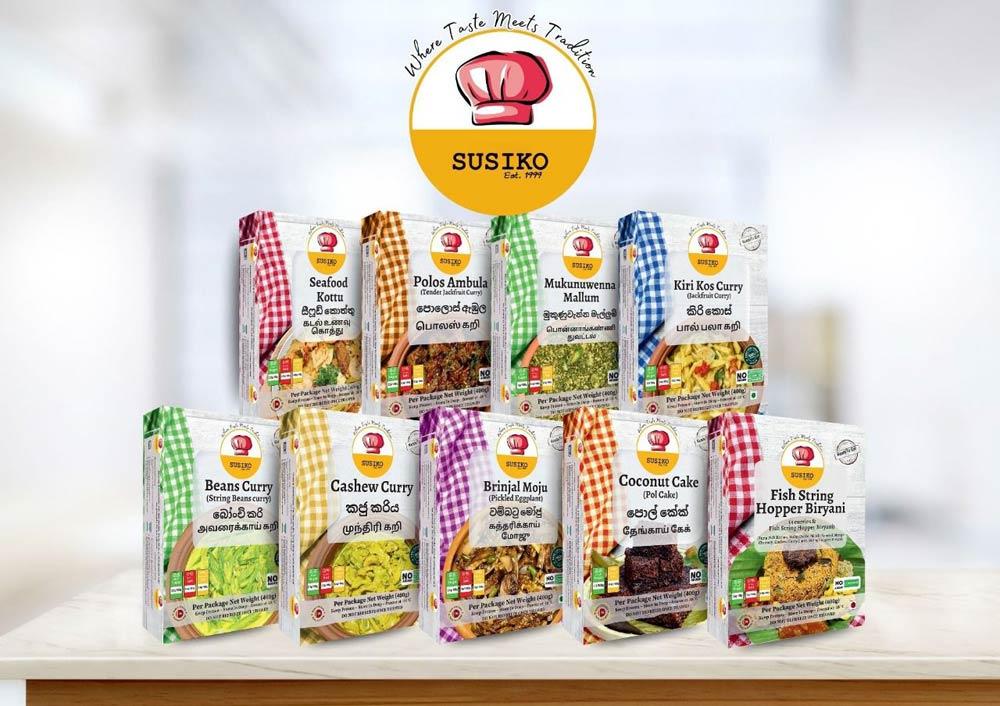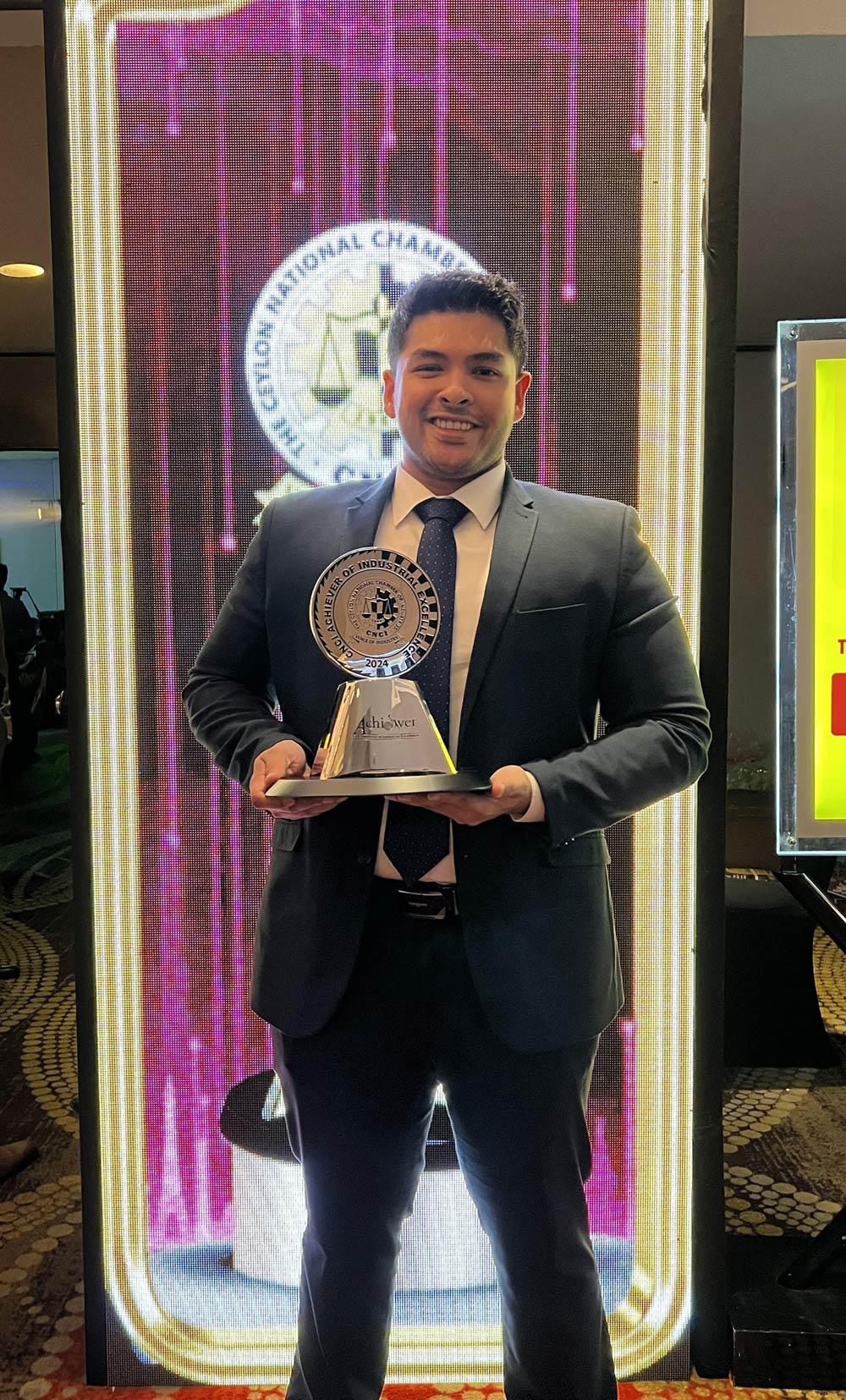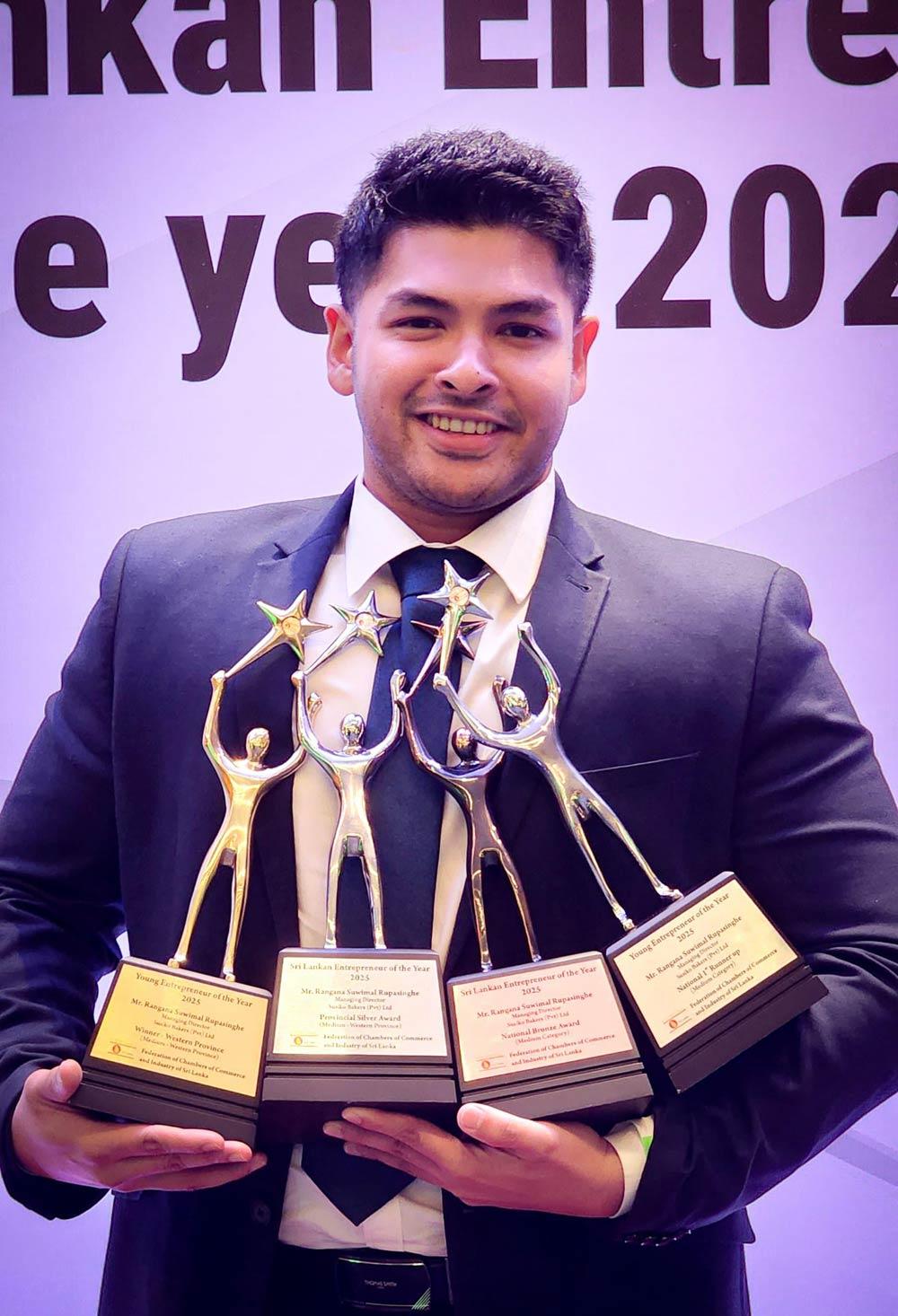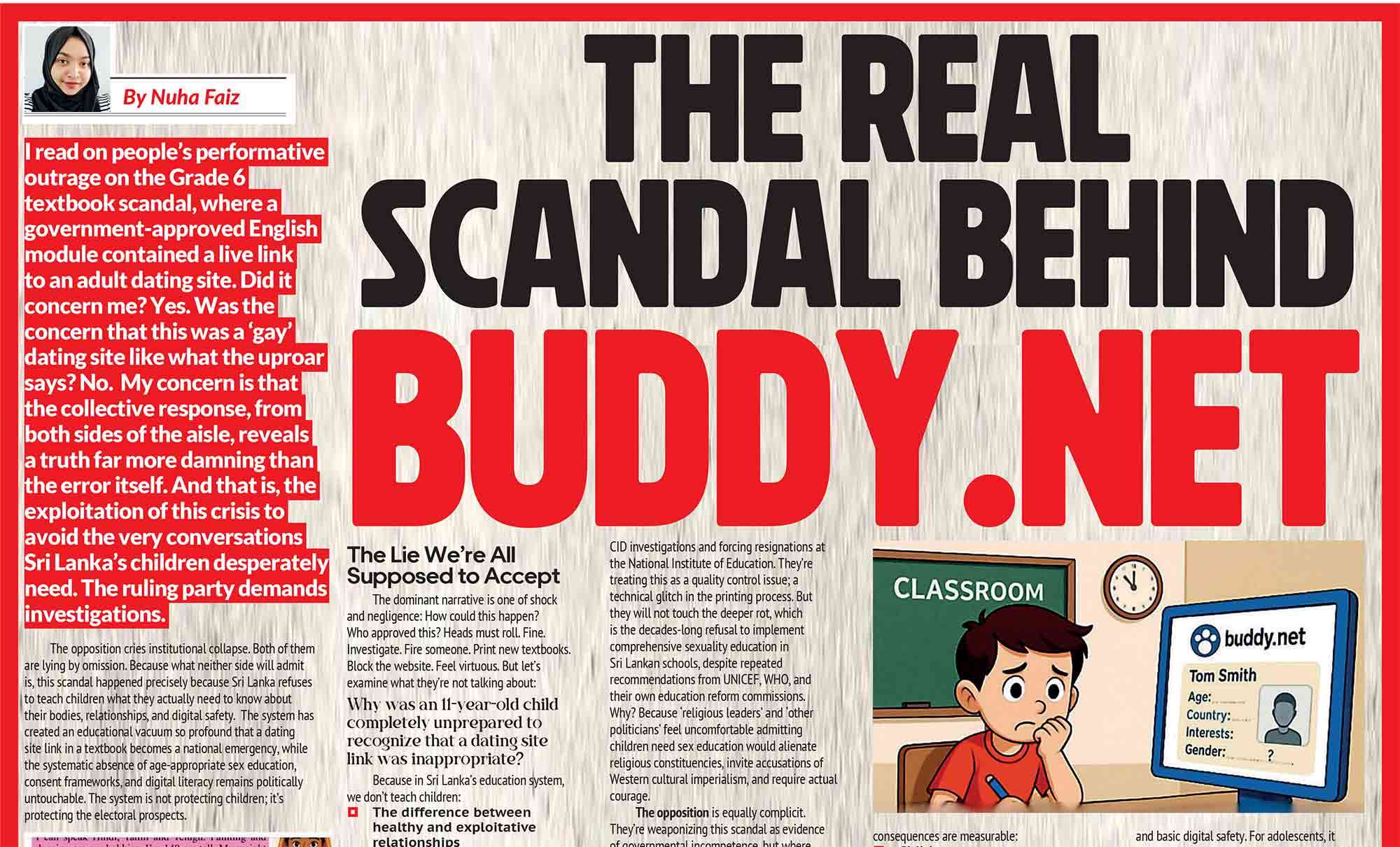
-

Managing Director at Susiko Bakers (Pvt) Ltd. | Group CEO at Srinko Group of Companies
 In the dynamic world of global entrepreneurship, few leaders bridge tradition and transformation as seamlessly as Suwimal Rupasinghe, Managing Director of Susiko Bakers and Srinko Group of Companies. Guided by the philosophy of “delivering quality with value,” Rupasinghe has taken Sri Lankan cuisine to the world not just as a business, but as a cultural story built on authenticity, innovation, and purpose. What began as a family venture has grown into a globally trusted brand, known for its excellence and bold reimagination of Sri Lankan flavours for international markets. Under his leadership, Susiko has introduced frozen ready-to-eat meals, pioneered white-labelling strategies, and expanded into new culinary frontiers all while staying true to its roots. A recipient of multiple awards for business excellence, Suwimal embodies the new generation of Sri Lankan entrepreneurs. In this edition of Legacy Builders, Suwimal Rupasinghe reflects on the values, choices, and defining moments that continue to shape Susiko’s remarkable journey and his vision for taking Sri Lankan enterprise to the world with integrity and impact.
In the dynamic world of global entrepreneurship, few leaders bridge tradition and transformation as seamlessly as Suwimal Rupasinghe, Managing Director of Susiko Bakers and Srinko Group of Companies. Guided by the philosophy of “delivering quality with value,” Rupasinghe has taken Sri Lankan cuisine to the world not just as a business, but as a cultural story built on authenticity, innovation, and purpose. What began as a family venture has grown into a globally trusted brand, known for its excellence and bold reimagination of Sri Lankan flavours for international markets. Under his leadership, Susiko has introduced frozen ready-to-eat meals, pioneered white-labelling strategies, and expanded into new culinary frontiers all while staying true to its roots. A recipient of multiple awards for business excellence, Suwimal embodies the new generation of Sri Lankan entrepreneurs. In this edition of Legacy Builders, Suwimal Rupasinghe reflects on the values, choices, and defining moments that continue to shape Susiko’s remarkable journey and his vision for taking Sri Lankan enterprise to the world with integrity and impact.
Let’s start from the beginning, could you share a glimpse into your childhood and upbringing? What kind of environment did you grow up in?
Honestly, I had a great childhood. My parents did a fabulous job instilling important values such as fairness, kindness and just being a good person overall. I think you always shape yourself to be a reflection of the values you follow. Even as children, me and my brother were never forced anything upon us, and it really allowed us to be free and find a lot of things out by ourselves. I went to Colombo International School for the majority of my schooling life, and I played a lot of sports and video games a lot, but I never neglected my studies either and I think I got along with everyone fairly decently as well. My mom always wanted a doctor in the family, so my brother decided to chose medicine and became a surgeon in the end and I ended up deciding to takeover our family business after my father.
Many successful leaders speak of a defining turning point, was there a moment when you realized that this was more than a career, but a calling?
Actually no, there are instances in people’s life where they do think that a certain thing is a calling but honestly for me its all about responsibility. I don’t really mind if it’s a calling or not, I will do what’s needed to be done whether I like it or not. I think most of that is about accepting that there are things greater than yourself such as the lives of the people working in our companies and the people who depend on the salary they get. Its these people’s livelihoods and I never really thought it had to be a calling for me to do business and takeover from my father but more of a responsibility I had promised and taken. Luckily for me I’m not that bad at the job!
Taking over a family business often involves walking the fine line between preserving legacy and introducing change. How did you approach modernizing Susiko’s operations and strategy while remaining true to the vision your father built?
Honestly, it had to change in order to survive. The industry even before the easter attacks was very bad. There was immense competition from so many different players that everyone understood that something different had to be done and they kind of relied on me to come up with a new idea to do things differently. But of course, introducing something, managers had not really seen or thought possible was definitely a challenge. So thought it was easily to get younger people to understand my way of thinking than the older managers who were more reluctant to change. I empowered a few key young guys who to this day manage all the export operations. So, in a way I was never really thinking about legacy just survival. I think if you are able to survive for a long time, the legacy will create itself. Also, I think my father would want me to create my own legacy than me preserving his own.
Cultural tastes evolve, especially among second- and third-generation Sri Lankan communities abroad. How do you future proof a brand when consumer identity itself is changing?
The mostly important thing to future proof here is your brand identify. What does your brand stand for. Susiko’s main value is simply Value for money. The idea of hiding in plain sight. Creating a brand that people are so used to in their day-to-day life that they don’t even realize they have a brand loyalty to it. In the case of the second and third generations aboard its about creating a brand that goes as tradition. Since they won’t be exposed to many Sri Lankan brands aboard, they need a brand to link back to Sri Lanka with which shows their roots. I think Sri Lankans who live aboard are more “Sri Lankan” than the ones who actually live here so its about giving a bit of Sri Lanka they can use on a day-to-day basis. I think that is the goal. The easy part is the vision, but the hard part is getting there.
The introduction of frozen ready-to-eat meals and white labelling was a bold move in a post-crisis market. What guided your decision-making during that pivotal phase, and how did you balance short-term survival with long-term brand building?
Once again, pure survival. The only idea was the survive. The even before the crisis the industry was terrible and with the easter attacks and covid 19 destroying businesses there is only 1 option that was to survive. According to the Bakery Association about 4000 bakeries closed down during that time so you can see how bas the situation was. Brand was the last thing I was thinking about at the time; it was mainly about how to I keep factory running and protect the jobs of my workers. This was all they had. So, I honestly accepted any deal they threw at me until I was strong enough as a manufacturer to have my own brand in the market. The main question distributors ask is “Why should I market your brand?” So, you have to convince them that selling your brand is better than anyone else’s and there is where your brand values come into play. I was also very lucky to find good distributors. You definitely need some luck to succeed.
You’ve often spoken about the balance between creativity and discipline in leadership. How do you foster a culture that encourages “out-of-the-box” thinking while maintaining the rigor and focus needed for execution?
Short answer is Exposure. Out of the box thinking comes simply from being exposed to new things. In my case, I was lucky enough to be able to visit so many different countries and live in countries with diverse people and cultures. Being exposed to different things just helps your view a problem in a different way. It is your ability to create to convert this experience into products that are monetizable. For example, when I was studying in university in Korea, I thought how nice it would be to have Sri Lankan short eats and food but there wasn’t any easy access to these foods and I thought about all the other 1000’s of Sri Lankans who worked in Korea as labour who probably were not used to eating Korean food and thought how hard it must be for them. That’s how I got initially good the idea for our export business but at the time I didn’t even think it was a business. Just being exposed to situations like that help you get that out of the box mindset. Since no one can live your experiences, it is important for the entrepreneurs to really project the problem and solution as a picture to their employees. The employees need to believe in the picture as well. So, in leadership, I think your employees sometimes know better than you for certain things, but you need to be person that paints the picture.
You’ve received several prestigious awards recently. What do these recognitions mean to you personally, and how do they reflect the journey behind your success?
Honestly, it is an enormous privilege to receive the awards that I did. I won 9 major awards in the last 2 years including winning Young Entrepreneur of the Year 2025 and Sri Lankan Entrepreneur of the year 2025, However I don’t really take to mind because I know the journey has only started so there is no time to celebrate. The journey up to now has really nurtured and molded me into the businessperson I am today. I am very grateful for those who has helped me to achieve all these prestigious awards. It is always a team effort at the end of the day and not my sole effort. Personally, I think that I haven’t really shown my full potential so I hope you can ask me this question again in the future.
Do you believe legacy is something consciously built through vision and intention, or does it emerge organically through the consistency of one’s actions?
I think if you lead a disciplined life, building a good legacy is an inevitability. My brother used to always tell me “Having no self-control is like a city without walls”. There are so many distractions out there and staying focused and disciplined to one thing is very difficult. If you are able to be disciplined enough and commit to your goals, then you can build a great business, and your legacy will create itself.
Finally, if you could leave one timeless message for aspiring entrepreneurs or a lesson that captures your journey and philosophy, what would it be and why?
If there is a message, I would like to say to young entrepreneurs is to live their life according to quotes. Go and find yourselves some aspiring life quotes centered around what kind of businessperson you would like to be and embody those quotes.
The most difficult thing about entrepreneurship is that there is no one to motivate you. You need to find ways to motivate yourself and I found my motivation in thinking about inspiring quotes I saw through TikTok or Instagram. You can do anything if your motivated enough. Being desperate is the biggest motivator of them all, if you don’t find success in your business it just might mean that your just not desperate enough.












